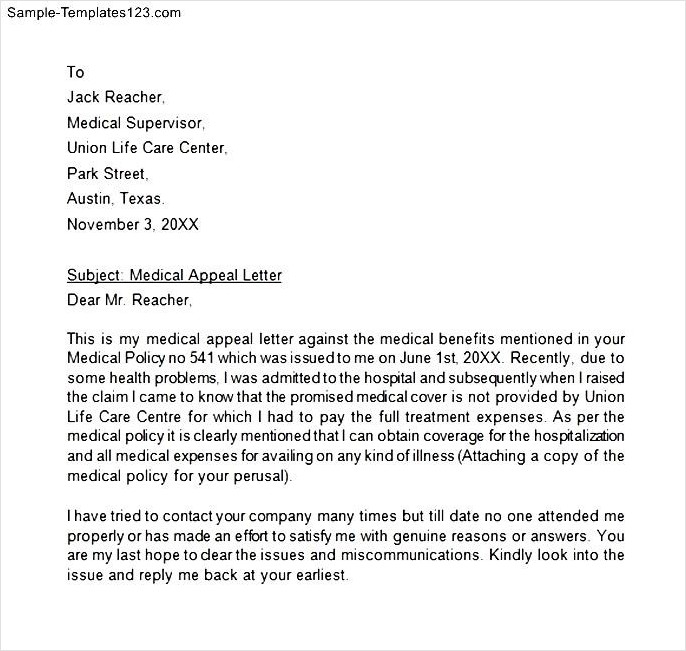When faced with a denial of coverage or reimbursement for a medical treatment, medication, or service, many individuals find themselves in the position of needing to write a medical appeal letter. This letter serves as a formal request to the insurance company or other relevant entity to reconsider their decision and provide the necessary coverage or reimbursement. Understanding the purpose and components of a medical appeal letter is crucial in navigating the healthcare system and advocating for one’s own medical needs.
What is a Medical Appeal Letter?
A medical appeal letter is a written document that individuals can use to challenge a denial of coverage or reimbursement for a medical treatment, medication, or service. It serves as a formal request for the insurance company or other relevant entity to review the initial decision and reconsider providing the necessary coverage or reimbursement.
Medical appeal letters are typically necessary when an insurance claim is denied based on factors such as medical necessity, experimental or investigational treatment, lack of coverage for a specific procedure or medication, or exceeding coverage limits. By providing a detailed and well-structured argument, individuals can increase their chances of successfully appealing the initial decision.
Why Do You Need a Medical Appeal Letter?
There are several reasons why you may need a medical appeal letter. Some of the most common situations include:
- Denial of coverage: If your insurance company denies coverage for a medical treatment, medication, or service, a medical appeal letter can be used to challenge this decision.
- Denial of reimbursement: If you have already paid for a medical treatment, medication, or service out-of-pocket and are seeking reimbursement, a medical appeal letter can be used to request the reimbursement.
- Disagreement with treatment options: If your healthcare provider recommends a specific treatment option that is not covered by your insurance, a medical appeal letter can be used to argue for coverage.
- Exceeding coverage limits: If you have reached the maximum coverage limit for a particular treatment, medication, or service, a medical appeal letter can be used to request an exception.
Overall, a medical appeal letter is a powerful tool that can help individuals regain access to the medical treatments, medications, or services they need.
When Should You Write a Medical Appeal Letter?
It is important to write a medical appeal letter as soon as you receive a denial of coverage or reimbursement. Most insurance companies and other relevant entities have specific timeframes within which you can submit an appeal. Failing to meet these deadlines may result in the denial of your appeal.
Additionally, it is crucial to gather all the necessary documentation and information before writing the letter. This includes medical records, prescriptions, invoices, and any other relevant documents that support your case. The more evidence you can provide to support your appeal, the stronger your argument will be.
What to Include in a Medical Appeal Letter?
When writing a medical appeal letter, it is important to include the following components:
- Introduction: Begin the letter by addressing the recipient and stating the purpose of the letter. Clearly state that you are appealing the denial of coverage or reimbursement.
- Background: Provide a brief overview of your medical history and the specific treatment, medication, or service that is being denied. Explain why it is medically necessary for you to receive it.
- Evidence: Include any supporting documentation, such as medical records, test results, or expert opinions, that demonstrate the medical necessity of the treatment, medication, or service.
- Argument: Present a clear and concise argument as to why the denial of coverage or reimbursement is unjustified. Address any specific reasons given for the denial and provide counterarguments.
- Closing: Conclude the letter by summarizing your main points and reiterating your request for the insurance company or other relevant entity to reconsider their decision.
By including these components in your medical appeal letter, you can effectively communicate your case and increase your chances of a successful appeal.
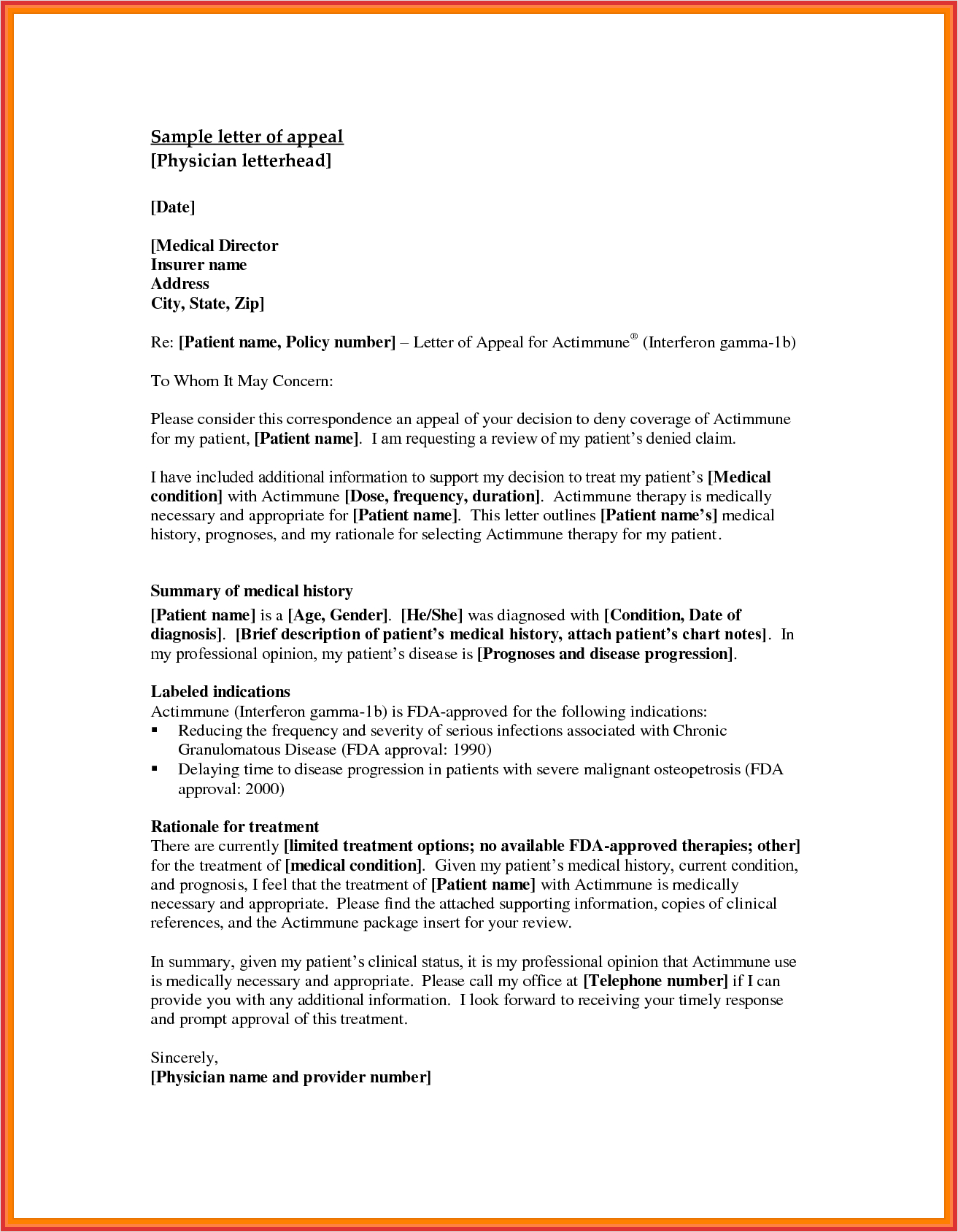
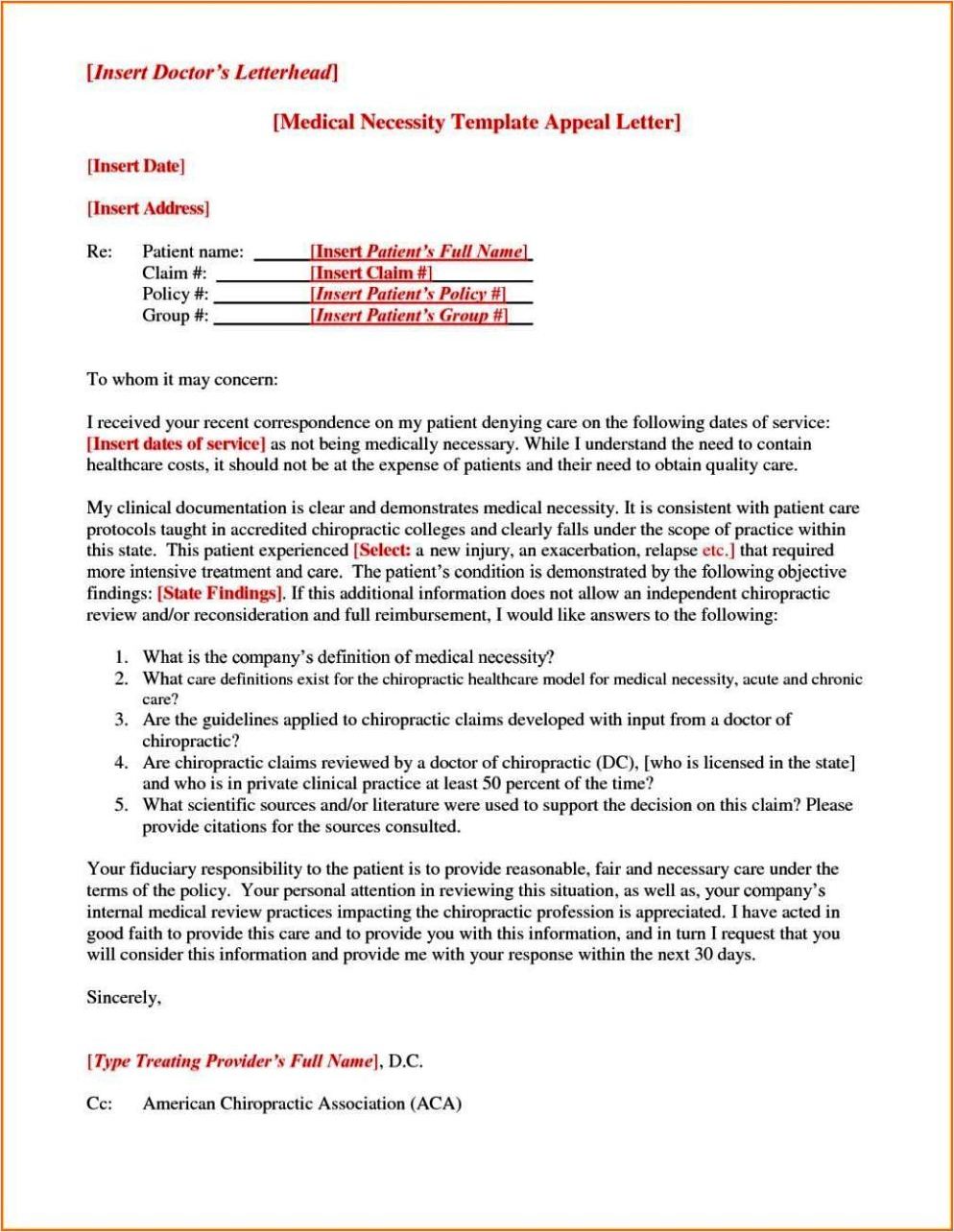
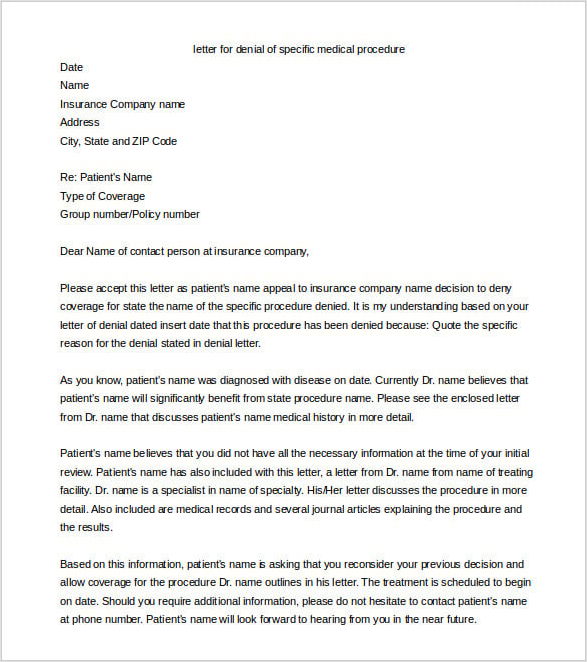
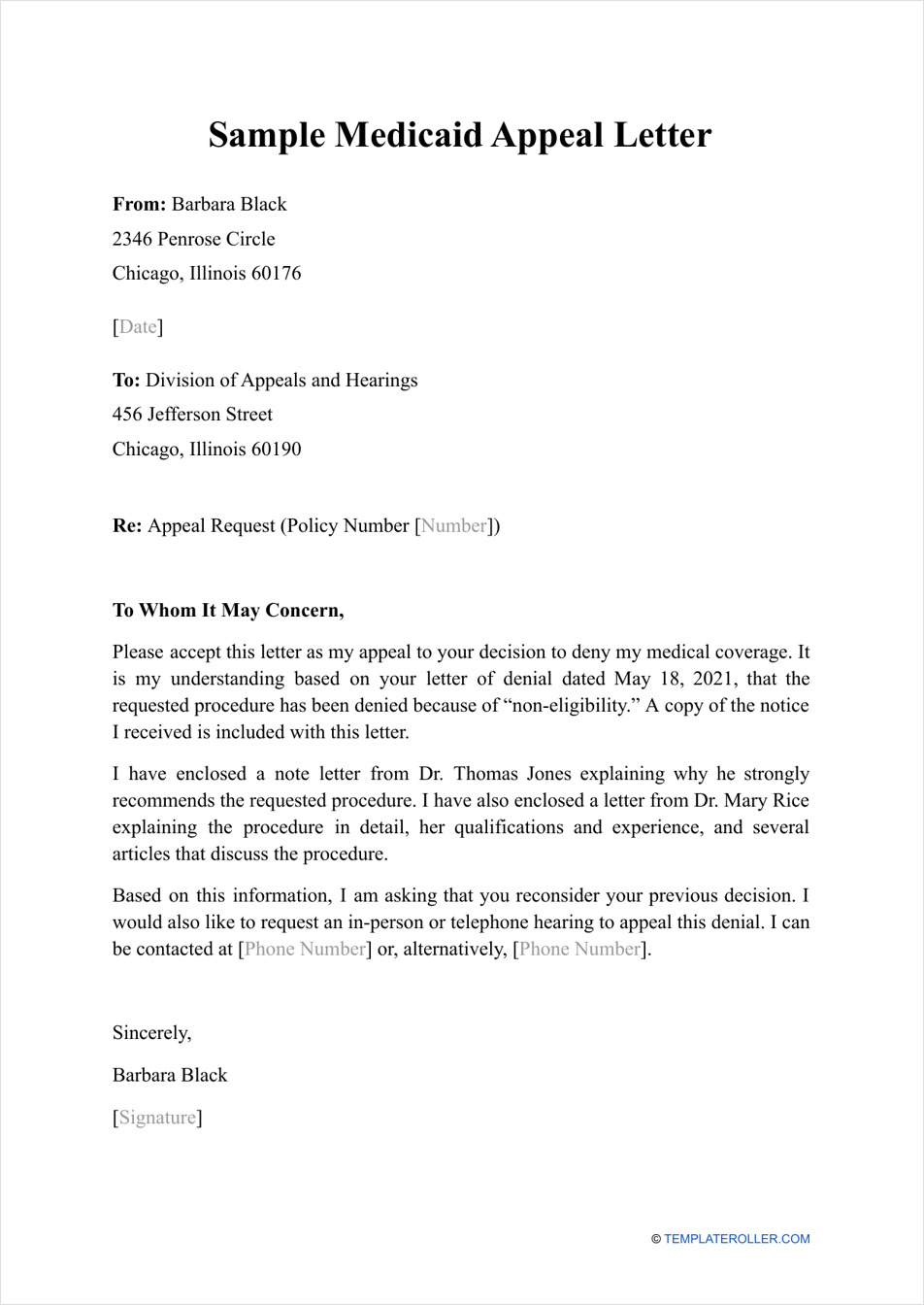
How to Write a Medical Appeal Letter?
Writing a medical appeal letter can be a daunting task, but with careful planning and organization, you can create a compelling document. Here are some tips to help you write an effective medical appeal letter:
- Be clear and concise: Use simple language to clearly state your case. Avoid jargon or technical terms that may confuse the reader.
- Provide specific details: Include specific dates, medical codes, and other relevant information to support your argument. The more specific you can be, the stronger your case will be.
- Use a respectful tone: Maintain a professional and respectful tone throughout the letter. Avoid using aggressive or confrontational language.
- Proofread and edit: Before submitting your medical appeal letter, make sure to proofread it for any errors or inconsistencies. Edit it for clarity and coherence.
Remember, the goal of a medical appeal letter is to present a compelling argument and provide evidence to support your case. By following these tips, you can increase your chances of a successful appeal and regain access to the medical treatments, medications, or services you need.
Medical Appeal Letter Template Word – Download
